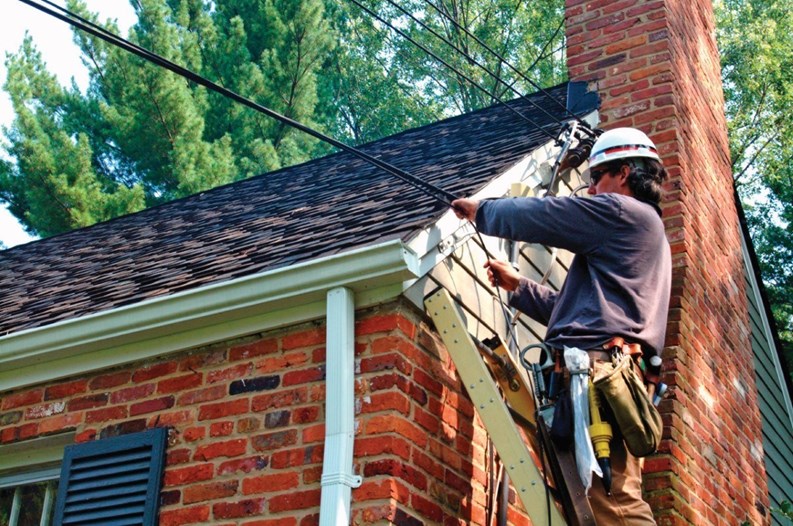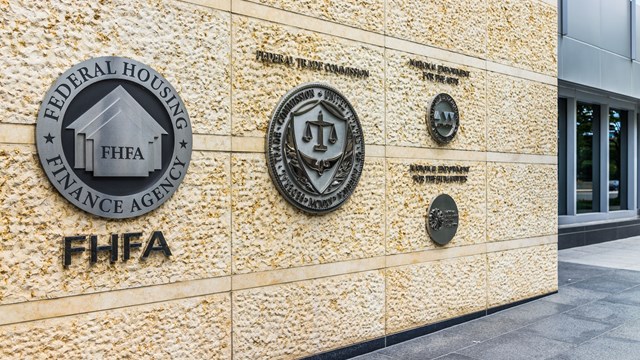In a far-reaching ruling that affects condominiums across the country, the Federal Communications Commission (FCC) recently banned exclusive contracts between cable TV providers and multi-family dwellings. The ban, which went into effect March 7, has been hailed as long overdue by consumer groups.
“The FCC is removing one of the severe barriers to competition,” says Mark Cooper, director of research at the Consumer Federation of America in Washington, D.C. “Allowing consumers to switch [cable providers] will allow them to get a better deal.”
Not everyone is happy with the rulings, arguing that the exclusive deals allowed property owners or condo boards to bargain for special packages that benefited their tenants or unit owners.
In January, the National Multi Housing Council and National Apartment Association (NMHC/NAA) filed a lawsuit against the ban, charging, “many renters will see higher prices and worse service as a result of the FCC’s actions, exactly the opposite of the commission’s stated intention,” according to Jim Arbury, NMHC/ NAA’s senior vice president of government affairs.
But the pending lawsuit will not affect the ban’s implementation, according to the FCC.
Background of the Ruling
The FCC move follows a long history of complaints against cable providers for poor service and high prices. Consumer dissatisfaction with the cable industry has remained high in an annual survey of customers in various industries, according to Chris Murray, senior counsel with Consumers Union, publisher of the non-profit Consumer Reports magazine. “It would be fair to say that digital cable ranked near the bottom of the list right next to computer makers’ tech support,” says Murray.
While acknowledging that customer service issues have been an ongoing problem with all broadband providers, cable giant Comcast is taking major steps to improve the situation, says Sena Fitzmaurice, its senior director of corporate communications and government affairs. “We’ve hired tens of thousand of new employees over the past few years to install and service these new products, and it’s something we’re continually improving upon,” says Fitzmaurice. New service initiatives, she says, include starting and monitoring customer blogs to stay on top of emerging issues and then using that information “to be more responsive.”
Prices Dropping
One area where improvements have already occurred is in lower monthly charges for customers who take advantage of special discounts—typically when bundling telephone landlines, high-speed Internet and cable TV. Comcast’s version of the bundle–the “Triple Play”—is generally going for $99 a month and has been widely accepted, says Fitzmaurice. Verizon–which only started offering cable TV a few years ago--is offering its own bundle, known as FiOS, for $104 a month on its fiber optic network. Verizon’s combined offering, along with special promotions like a free 19-inch LCD HDTV around the holidays, has been wildly popular, says Dan O’Connell, national sales director for Verizon Enhanced Communities. “It’s a very competitive price when you consider what the incumbent cable providers are offering,” O’Connell says, noting that Verizon now offers cable service to 69 cities and towns in Massachusetts, and 19 in Rhode Island.
While acknowledging that increased competition, particularly in bundles, has resulted in savings, Murray says there’s a catch. “They’re luring consumers in with attractive bundle offerings but in many cases, as soon as the introductory prices run out, prices go way up and there’s not enough competition to discipline the price increase.”
Verizon’s O’Connell counters that it’s too early to know if savings will end when the typical one- or two-year contracts for bundles expire. “You don’t know what the prices are going to be one or two years from now,” he says, adding, “By the way, you don’t have to lock in for a year or two, although many people do because they want to stabilize their price. You can buy it month-to-month at the same price.”
Second Provider Brought In
At Montvale Condominium in Stoneham, Massachusetts, residents decided to bring in Verizon as a second cable provider after they compared bills and found that “Verizon’s bundle was much cheaper” than the incumbent, says Board Chair Edward Fallon.
When first approached by Verizon last March, his board questioned the need for a second provider, says Fallon. Three out of five trustees were thinking, “Why would we want to entertain this? What’s the purpose? What do we get out of it? That’s a lot of work to be put into this building and is there really a demand for this?” Fallon says.
But price comparison, along with persistent complaints about dropped landline phone calls from the incumbent cable provider, convinced the board to try out a second provider.
After the board approved FiOS as a second system, Fallon says the majority of residents ended up signing up for the new service, but not without some inconvenience. Some of the residents, especially the older ones, had trouble making the transition to a new interface. “A lot of people had a hard time adjusting to the new remotes,” Fallon says. Another unexpected factor was the lengthy install times inherent in a new system. Because of the brick structure at Montvale, install times ran up to eight hours, twice the normal time, says Fallon. Nearly a year later, Fallon says only a minority have remained with the incumbent provider and “just about everybody is happy with the new product.”
Resident Pressure
At Montvale, resident pressure on the board resulted in its accepting a second broadband provider, but that may not happen in every case, says FCC spokesperson Mark Wigfield.
“Our jurisdiction is over communication companies, so what we forbid is for them to enter into exclusive contracts, and it turns out [voids] any exclusivity provisions in existing contracts. If a condo board chooses only to deal with Verizon [for instance] and not sign up anybody else, it can do it,” he says. “If somehow the condo board gets put out of office by people who want more service, Verizon can’t wave an exclusive contract in front of the new board and say, ‘Sorry, your hands are tied.’ So it [the agreement] can’t govern what condo boards do, but it certainly means – once the leadership changes its mind, or is ousted – the phone company cannot enforce an exclusive agreement.”
Verizon’s O’Connell says his experience has shown that condo boards can be responsive to pressure from residents. “Groundswell support from the bottom up has actually gotten the board to come in line with us.”
Looking to the future, Cooper says the FCC decision and the resulting increased competition will ultimately help consumers. “Now we’re finally getting some rivalry … so you finally have a chance for a meaningful choice.”
But, says Cooper, it will take a while for even more robust compe-tition to establish itself. “Landlords have to learn about it. Landlords have to stay out of the way. Over time consumers can begin to exercise their choices,” he says. “It won’t happen overnight.”







Leave a Comment